Foreign companies should invest in Bangladesh as the opportunities the country offers far outweigh the challenges, said a top banker.
“There are business opportunities in Bangladesh. There are also challenges. But the opportunities probably outweigh the challenges in this market,” said Abrar A Anwar, chief executive officer of Standard Chartered Bangladesh.
“That's why we are here and we are investing,” he told The Daily Star in an interview last week.
Standard Chartered has about $6 billion in onshore and offshore assets in Bangladesh, including a capital of $500 million in the market.
“This is a significant commitment to this market. The good news is that it is growing. We are investing in this country every year,” Anwar said.
“As our balance sheet is growing every year, we have to inject more capital and retain more profit to support the growth. Plus, we are also making qualitative investments.”
The banker said Standard Chartered has continued to invest in the most critical sectors of the economy, like the development of human resources that has a direct positive impact on the overall banking sector. The local operations have employed 2,200 Bangladeshis and only four expatriates.
“We are proud that so many of our former colleagues are now running the financial sector of the country,” he said, adding that 18 CEOs and deputy CEOs of different banks and non-banks used to work for Standard Chartered previously.
“These financial institutions are also getting smarter and keeping us on our toes.”
Nearly 100 Bangladeshis are working for Standard Chartered in countries such as the UK, Singapore, Hong Kong and the Middle East.
Anwar said foreign investors normally look at three risks --nationalisation risk, currency convertibility risk and currency transferability risk.
There is no nationalisation risk in Bangladesh and the government promotes private sector-led growth, he said.
Bangladesh has also demonstrated that there has been no problem in converting the local currency into foreign currency. Similarly, the central bank has never stopped the transferability of foreign currency, he added.
“We are comfortably investing in Bangladesh and taking longer term exposure. That's what we communicate to other investors that you can consider taking a long-term exposure.”
Apart from facilitating capital flow, the bank is advocating to bring investment to the country.
Standard Chartered might be a British bank but its local franchise has footprints so deep-rooted that it has almost become a local financial institution, Anwar said.
For example, Standard Chartered Bangladesh was involved in arranging financing for both the public and private sectors for 30 percent of the current electricity generation capacity of Bangladesh.
It arranged half of the $8 billion private sector credit in the last five years in energy and power, aviation and export-oriented sectors. The bank was the lead arranger for all of the Boeing aircraft recently procured by Biman Bangladesh.
It also handles 12 percent of the country's total international trade and 10 percent of exports.
The bank's market share is about 3 percent now, with an outstanding loan amount of $3 billion.
“We have been here for 112 years and we consider ourselves as part and parcel of the country's economy and the community. We call ourselves the embedded bank,” said Anwar.
He said the bank's global capability is helping its local clients. Similarly, local enterprises are getting exposure through the global reach.
Over the decades, Standard Chartered has also become a banker to the banks; 31 banks are its customers and it handles 30 percent foreign currency clearing in Bangladesh. “These banks access the international markets through us.”
The bank has many “firsts” to its credit. In the corporate sector, the bank introduced the country's first project financing transaction, first derivative transaction and global syndicated transaction, and first export credit agency-backed financing.
In fact, the first letter of credit of sovereign Bangladesh was issued by Standard Chartered after the Liberation War in 1971.
The bank introduced full-fledged retail banking, the first debit card, credit card, international debit cards, Sharia-compliant credit cards, 24-hour contact centres and the online banking platform.
The bank has been the largest taxpayer in the financial sector for the last three years, and the second-largest taxpayer in the corporate sector.
Anwar, who has more than 25 years of experience in corporate and investment banking in Bangladesh, India and the UK, said the bank has launched mobile applications keeping the banking habit of the future generations in mind. In the coming years, people may not be keen on visiting brick-and-mortar branches.
“With 4G coming in and broadband internet access widening, the future would be much more technologically converged with banking.”
On the bank's profitability, Anwar said, “With surplus liquidity in the market and intense competition, it is quite natural that the margin will be compressed as you go forward.”
Standard Chartered hosts the 'Bangladesh Investment Summit' abroad offering a platform to foreign investors to better understand the country and business opportunities it offers. The next will be in China later this year.
“International investors can use us as a gateway to Bangladesh.”
On the recent exchange rate volatility, he said there is no crisis of foreign currency in the country and the overall financial accounts can cover seven to eight months of import expenditure.
“But day-to-day price volatility happens because of the demand and supply of a given day. The exchange rate went up because there was a bit of supply and demand gap in the market,” he said, adding that he did not see any manipulation by the banks.
Anwar cited non-performing loans as one of the major challenges facing the banking sector.
“Good governance has to be ensured, investment in the technology and IT security has to be made and various operational risks have to be managed.”
The bank wants to optimise its distribution network and would like to open a few more branches if the central bank allows, Anwar said.
news:daily star/21-may-2017





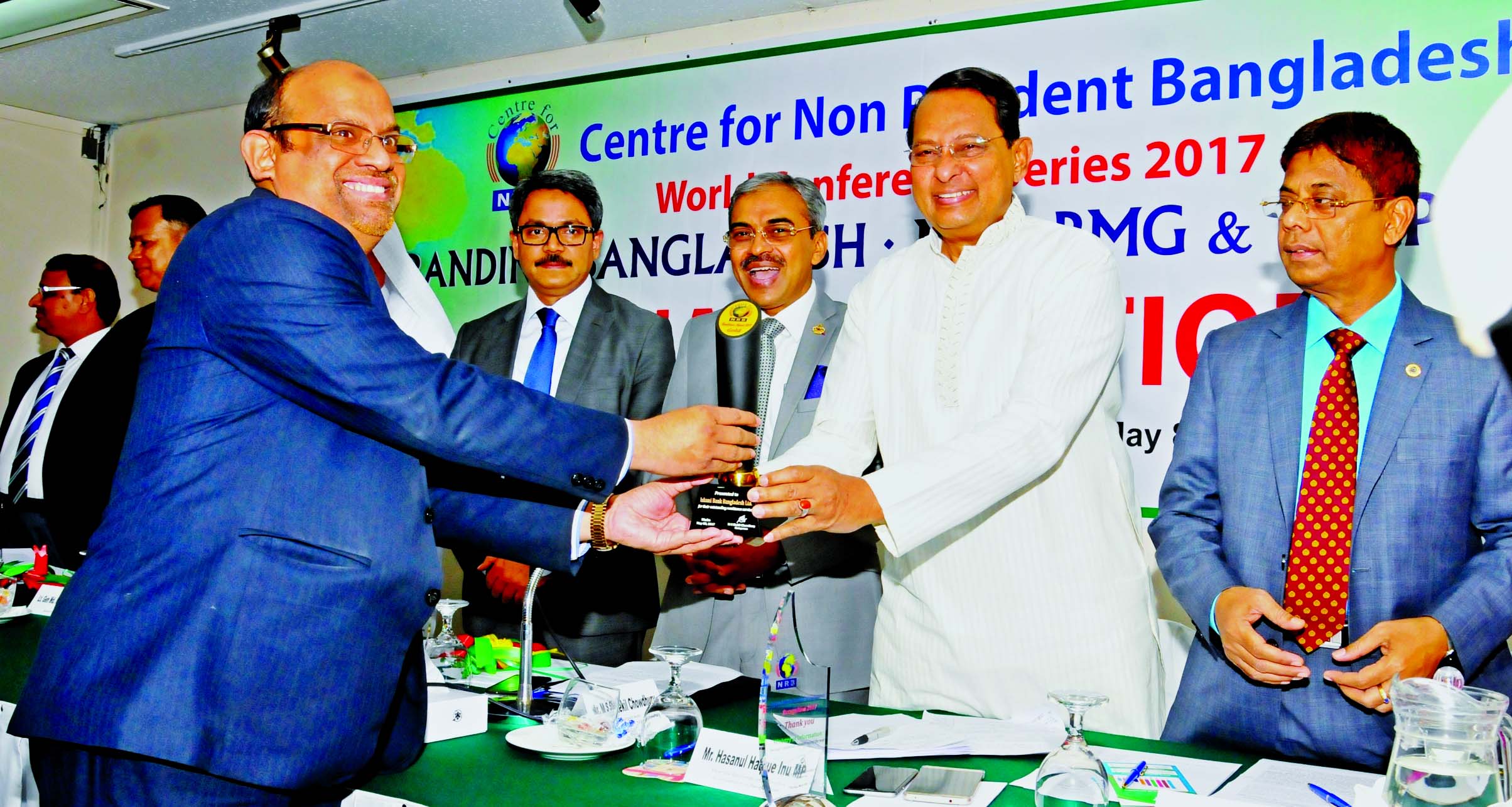 Md Shafiqur Rahman, Executive Vice President and Head of International Bankining of
Md Shafiqur Rahman, Executive Vice President and Head of International Bankining of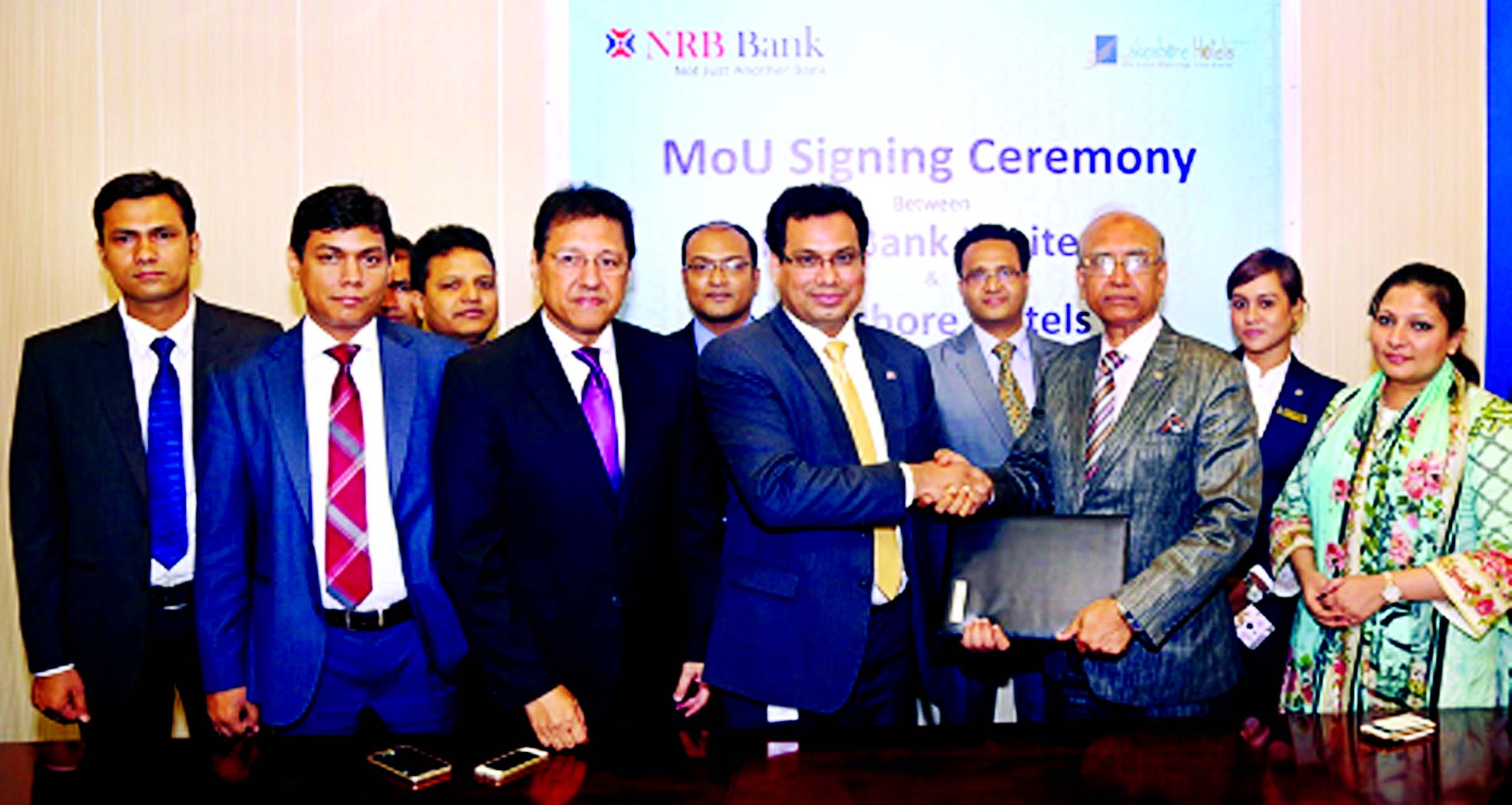 Imran Ahmed, FCA, Chief Operating Officer of
Imran Ahmed, FCA, Chief Operating Officer of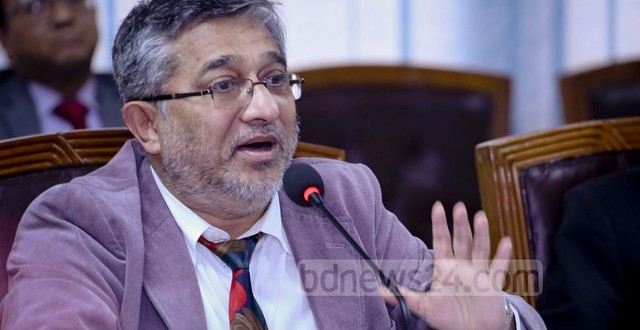
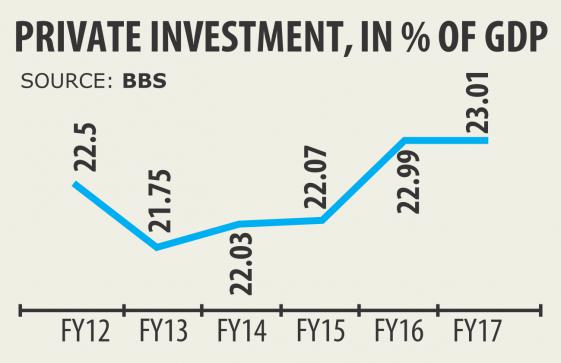
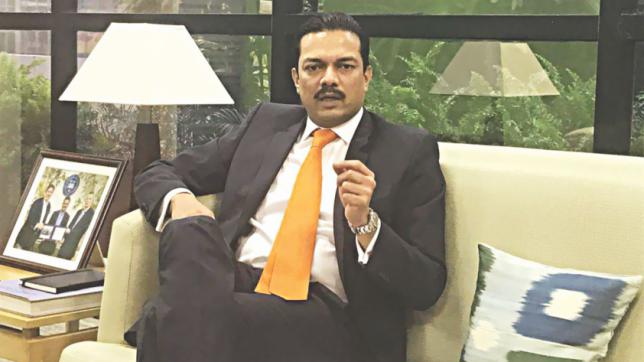 Abrar A Anwar
Abrar A Anwar